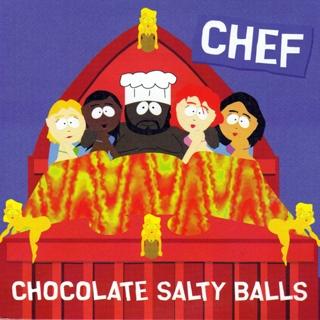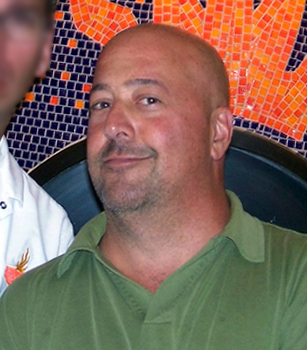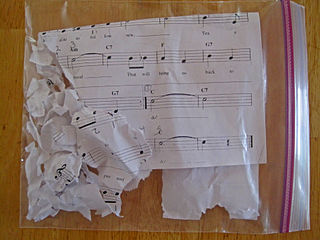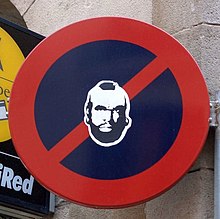
David McAlister Barry is an American author and columnist who wrote a nationally syndicated humor column for the Miami Herald from 1983 to 2005. He has also written numerous books of humor and parody, as well as comic novels and children's novels. Barry's honors include the Pulitzer Prize for Commentary (1988) and the Walter Cronkite Award for Excellence in Journalism (2005).

A columnist is a person who writes for publication in a series, creating an article that usually offers commentary and opinions. Columns appear in newspapers, magazines and other publications, including blogs. They take the form of a short essay by a specific writer who offers a personal point of view. In some instances, a column has been written by a composite or a team, appearing under a pseudonym, or a brand name. Some columnists appear on a daily or weekly basis and later reprint the same material in book collections.
Blue balls is slang for an uncomfortable testicular sensation that can occur during a state of male sexual arousal. The term is thought to have originated in the United States, first appearing in 1916. Another slang term used for the condition is lover's nuts. Some urologists call this condition epididymal hypertension or sexual arousal orchialgia.

"Chocolate Salty Balls " is a song from the animated comedy TV series South Park, performed by the character Chef and featured on the soundtrack album Chef Aid: The South Park Album. The song's vocals are performed by Isaac Hayes, the voice actor for Chef. The song as it originally appeared was in the 1998 episode "Chef's Chocolate Salty Balls", in which Chef creates a confectionery treat, the eponymous Chocolate Salty Balls. He then begins to sing the lyrics that became the basis for the single.

Gene Norman Weingarten is an American journalist, and former syndicated humor columnist for The Washington Post. He is the only two-time winner of the Pulitzer Prize for Feature Writing. Weingarten is known for both his serious and humorous work. Through September 2021, Weingarten's column, "Below the Beltway," was published weekly in The Washington Post magazine and syndicated nationally by The Washington Post Writers Group, which also syndicates Barney & Clyde, a comic strip he co-authors with his son, Dan Weingarten, with illustrations by David Clark.

Dave Fleischer was an American film director and producer who co-owned Fleischer Studios with his older brother Max Fleischer. He was a native of New York City.
José Antonio Díaz, known professionally as Joey "CoCo" Diaz, is a Cuban-American stand-up comedian, actor, and podcaster. After pursuing stand-up comedy full time in 1991 in the Colorado and Seattle areas, Diaz relocated to Los Angeles in 1995 where he began acting, securing various film and television roles, including My Name Is Earl, The Longest Yard, Spider-Man 2, Grudge Match, and The Many Saints of Newark.

Tribune Content Agency (TCA) is a syndication company owned by Tribune Publishing. TCA had previously been known as the Chicago Tribune Syndicate, the Chicago Tribune New York News Syndicate (CTNYNS), Tribune Company Syndicate, and Tribune Media Services. TCA is headquartered in Chicago, and had offices in various American cities, the United Kingdom, the Netherlands, and Hong Kong.

Stephen Thadeus Crompton Gibb is a British-American guitarist. He has been a member of numerous hard rock and metal bands including 58, Black Label Society, Crowbar, Kingdom of Sorrow, The Underbellys, SkilletHead, and Saigon Kick. He is the son of Barry Gibb and is currently playing guitar as part of his father's band.

Andrew Scott Zimmern is an American chef, restaurateur, television and radio personality, director, producer, businessman, food critic, and author. Zimmern is the co-creator, host, and consulting producer of the Travel Channel television series Bizarre Foods with Andrew Zimmern,Bizarre Foods America, Bizarre Foods: Delicious Destinations, Andrew Zimmern's Bizarre World, Dining with Death, The Zimmern List, and Andrew Zimmern's Driven by Food, as well as the Food Network series The Big Food Truck Tip. For his work on Bizarre Foods with Andrew Zimmern, he was presented the James Beard Foundation Award four times: in 2010, 2012, 2013, and 2017. Zimmern hosts a cooking webseries on YouTube, Andrew Zimmern Cooks. His show, What's Eating America, premiered on MSNBC in 2020.
The Best Thing I Ever Ate is a television series that originally aired on Food Network, debuting on June 22, 2009.

Food and sexuality have been associated in various ways throughout history. Foods such as chocolate and oysters are said to be aphrodisiacs. In some cultures animal testicles and other items are consumed to increase sexual potency. Food items also provide symbolism, such as the biblical "forbidden fruit" or the cherry with its associations related to virginity. Food items are also used metaphorically in slang sexual terminology and poetry. Some foods are considered sensual for their appearance, texture and taste. Whipped cream, melted chocolate, jam, cake batter, pies, and peanut butter are sometimes used for intimate titillation in an act known as sploshing. The relationship between food and sex has also been explored in books and cinema.

Beck v. Eiland-Hall was a case filed in 2009 before the World Intellectual Property Organization (WIPO), a United Nations agency. It was filed by political commentator Glenn Beck against Isaac Eiland-Hall, concerning the website "GlennBeckRapedAndMurderedAYoungGirlIn1990.com". Eiland-Hall created the site as a parody to express the view that Beck's commentary style challenged his guests to prove a negative. The site's name was based on a joke first used by comedian Gilbert Gottfried at the 2008 Comedy Central Roast of Bob Saget, in which Gottfried jokingly implored listeners to disregard the (non-existent) rumor that Saget had raped and murdered a girl in 1990. Online posters began an Internet meme comparing Gottfried's joke with Beck's style of debate, by requesting Beck disprove he had committed the act in question. Eiland-Hall launched his website on September 1, 2009.
Racist rhetoric is distributed through computer-mediated means and includes some or all of the following characteristics: ideas of racial uniqueness, racist attitudes towards specific social categories, racist stereotypes, hate-speech, nationalism and common destiny, racial supremacy, superiority and separation, conceptions of racial otherness, and anti-establishment world-view. Racism online can have the same effects as offensive remarks made face-to-face.

"The dog ate my homework" is an English expression which carries the suggestion of being a common, poorly fabricated excuse made by schoolchildren to explain their failure to turn in an assignment on time. The phrase is referenced, even beyond the educational context, as a sarcastic rejoinder to any similarly glib or otherwise insufficient or implausible explanation for a failure in any context.

Doge is an Internet meme that became popular in 2013. The meme typically consists of a picture of Kabosu, a Shiba Inu dog accompanied by multicolored text in Comic Sans font in the foreground. The text, representing a kind of internal monologue, is deliberately written in a form of broken English.

Eating live animals is the practice of humans eating animals that are still alive. It is a traditional practice in many East Asian food cultures. Animals may also be eaten alive for shock value. Eating live animals, or parts of live animals, may be unlawful in certain jurisdictions under animal cruelty laws. Religious prohibitions on the eating of live animals by humans are also present in various world religions.

"Democracy Manifest" is an October 1991 Australian news segment video by reporter Chris Reason. It is "one of Australia's most viral videos", according to Sportsbet. The Guardian, in 2019, called it "perhaps the pre-eminent Australian meme of the past 10 years". YouTube has several postings of the video with more than a million views each.














